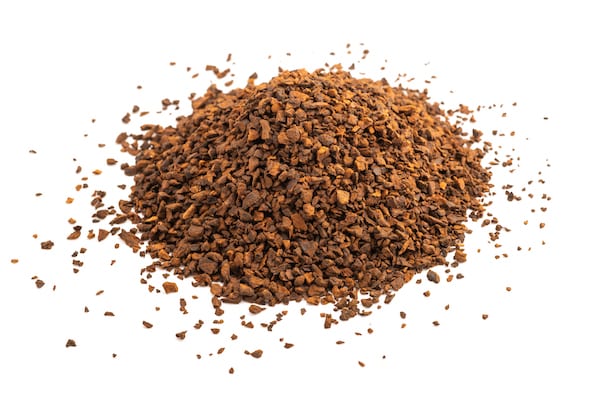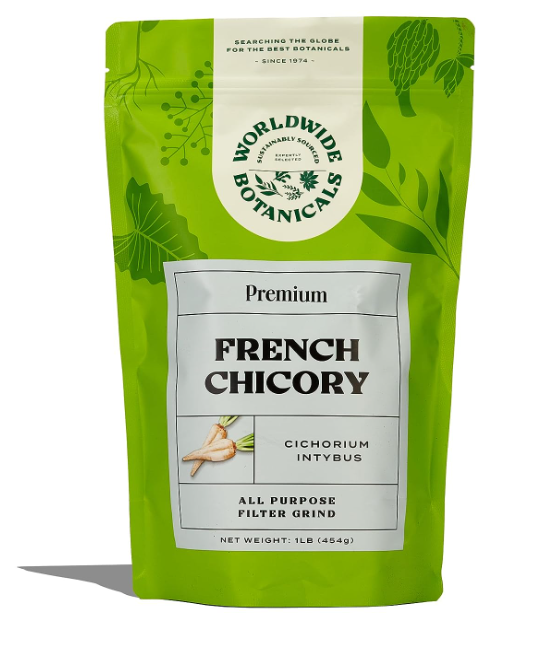You may not know chicory root, but you’ll likely recognize its periwinkle-blue flowers. Let’s take a look at the benefits of chicory root fiber, the side effects of chicory root extract, and why some people use it as a coffee substitute.
What is chicory root?
Relatives of dandelion, chicory (or endive) is a wildflower that blooms on roads and meadows all summer long. The use of chicory roots and leaves dates back to ancient Egypt, and its presence in herbal medicine and the kitchen has only grown since then.
Its long, serrated leaves look and taste similar to dandelion greens and can be eaten raw in salads with vegetables such as endive or endive. They are also often stewed to reduce their bitterness.
Although prebiotic chicory root extract or supplements are more common, chicory root is consumed as a vegetable in some European countries. Chicory root looks like parsnips and was also grown as a vegetable by the ancient Greeks and Romans.
Chicory Root Benefits

Like maca root and rhodiola rosea, chicory root is used in herbalism for a variety of reasons. Research confirms some of chicory’s traditional uses—mainly due to its unique fiber content—but note that more research is needed.
1. Chicory root contains prebiotic fiber
Research shows chicory root has a variety of benefits due to its bitter-tasting compounds and relatively high content of the prebiotic fiber inulin (a type of resistant starch). One of the most popular topics is digestive health, explains Liz Wyosnick, MS, RDN.
Chicory root is one of the plants with the highest inulin content compared to other foods, Wisnick said. Inulin is a prebiotic, which makes it an important food source for beneficial gut bacteria. Jerusalem artichokes are the second most abundant in inulin, but foods such as leeks, onions, asparagus and garlic also contain fiber.
Like insoluble fiber (the fiber found in dark leafy green vegetables, nuts and seeds, and whole grains), inulin has a “bulking effect” on the stool, making it softer and easier to pass. Therefore, chicory root fiber and other types of prebiotic fiber may help prevent occasional constipation.
2. Chicory Root and Weight Management*
All of this fiber leads to another benefit of chicory root. Fiber (including inulin) and protein are thought to help you feel fuller for longer, making them important components of a healthy weight management strategy.
3. Chicory root can be used as a caffeine-free coffee substitute

This chicory root benefit is a tasty treat that can help you reduce your caffeine intake. “Chicory root is often used as a coffee substitute because it has a bitter taste, is similar in color to black coffee, and does not contain any caffeine,” Wisnick said.
If you’ve been to New Orleans, you’ve probably washed down the beignet with chicory coffee made from roasted chicory root. Chicory root coffee was born out of necessity, as a way to stretch the limited supply of coffee beans.
Young chicory root is slightly bitter with a hint of caramel, similar to coffee. Chicory root is roasted, ground, and brewed like coffee.
The only drawback to preparing chicory root this way is: you won’t get fiber.
Chicory Root Side Effects
While more fiber is generally a good thing, you should take your time, especially since chicory root contains inulin. Chicory root is generally safe, but people new to it may experience the following symptoms:
- gas
- abdominal bloating
- diarrhea
- abdominal cramps
- increased urination
“The inulin in chicory root’s bitter compounds is well hidden, and you can easily consume enough inulin to cause digestive discomfort,” warns Wisnick. “Some people also believe that chicory root is a mild diuretic and may cause increased urination, so it is important to drink plenty of water if consuming drinks or foods containing chicory root.”
As with any fiber supplement, start small and work your way up—and drink plenty of water along the way.
Where to find chicory root

You can find whole chicory root in specialty stores, while chicory root coffee or tea can usually be purchased in regular supermarkets (Cafe du Monde is a popular brand).
Chicory root supplements are available in health food stores, major supermarkets, some pharmacies and online.
But before purchasing any supplement, consider these questions: How are supplements produced? Are there no harmful solvents or other additives in the process? Is the company reputable? Does their claim sound too good to be true?
Keep in mind that supplement companies must adhere to their stated industry standards, which are regulated by the U.S. Food and Drug Administration. And be sure to discuss any supplements you’re considering with your doctor.
Here are some chicory root products available on Amazon:
*These statements have not been evaluated by the Food and Drug Administration. This product is not intended to diagnose, treat, cure, or prevent any disease.
